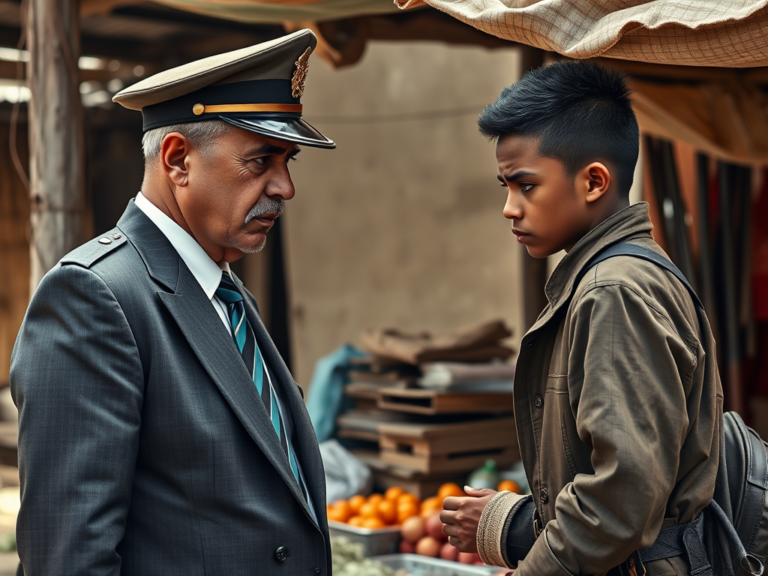A Killer of Kings
Note: I wrote this in 1986 when thinking about how the time of the judges in Israel would have looked from a Canaanite perspective. I have woven into it a critical understanding of the authorship of Psalm 29.
“The voice of the Lord is loud . .
Psalm 29 (Author’s Translation)
“The Canaani are not welcome here,” admonished Miryam’s mother, “go carefully, and avoid meeting any strangers.”
“Yes, Imi.” Miryam shouldered the water jug with ease born of long practice, and walked away from the tents and the animals, up toward the stream Just across the rise. It was typical of her father that he did not want to set up camp next to the stream. “The walk is good for you, daughter,” he had said. The few servants her family claimed were caring for the sheep and goats, helping to keep track of them as they consumed the sparse vegetation which grew amongst the rocks.
The walk across the hill was invigorating, the stream beautiful, its limited flow seeming a torrent in the barren land. “It is too near the land of the Reuveni,” she heard the echo of her mother’s voice, then her father: “They are no longer so strong. They will not bother us. Besides, the territory is open, north of their land.” She hurried her steps. She could almost sense the presence of enemy, not enemies, Just the feeling of hatred, undirected and uncontrolled. Where she drew the water, the stream fell in steps over a small cliff, dropping a total of about 30 feet in all, in easily climbed steps.
Miryam paused, examining the floor of the small valley below. Surrounding the brook were the ruins of a small town, the tilled area around it still apparent, but covered by some years of growth. The stream bed had changed, leaving a path amongst the fields, and this new path stretched through the ruins, carrying away the stones, laboriously brought there by men. Miryam felt a stab of sympathy, feeling the weight of the water-filled jug on her shoulder. Then she noticed the statue.
It was not clear what it was, the distance was too great, but where the stream had carried away several buildings, there was one which had left walls on both sides, and a piece of floor, forming an island in the middle of the stream. On that island was a column, short, randomly placed where no column belonged, but standing straight. Its pose sent a shiver through the girl on the hill, as she stiffened with the jug on her shoulder, imagining herself standing alone, surrounded by water, a sentinel against the ravages of time and weather.
She saw the valley filled with life, the men coming home from the fields, the king sitting in the gate, greeting his people by name as they returned, the children playing joyfully in the streets. She felt surrounded, as men in armor, spears at the ready, crept down the staircase upon which she stood, silently approaching the village. The elders were gathering, people were beginning to feast-not a celebration, just an evening meal. From the brush around the town rushed the men, now vanished from the watery staircase.
She saw a spear enter the king’s chest. He did not die quickly. His lips moved. “Give me revenge,” said the king.
The scene faded, and a wayward breeze fluttered amongst the ruined stonework, shaking the leaves of grasses and shrubs that were violating the works of men. Yet the statue stood sentinel over the valley, its platform splitting the destructive stream, its pose indicative of life and direction.
With wordless fascination Miryam set down the jug, warnings forgotten, the image of a king and a rock etched in her mind, the sight of a village in flames; men, women, and children dying on the edge of blades; shrines desecrated. She walked down to the village, and threaded her way through the ruins of the houses to the place where the statue stood. It had once been shaped, she could tell, but it had been defaced. It stood on the piece of floor in the middle of the stream, not attached, but simply fallen there, remaining as a sentinel over the dead. Miryam removed her sandals and stepped into the water and across. She knelt before the statue, in examination or worship, she did not know. Besides, who could tell what god was represented there? She thought it was Baal, lord over the water, but she could not tell with the face removed.
How long she knelt, she did not know, but she was brought back to consciousness by the sound of horses’ hooves. In this part of the country, that could only mean Reuveni; rich Reuveni. She looked around, wondering which way to go, feeling disoriented and confused. She picked the shoreline nearest, only a few feet away, and the welcome rocks of the ruins. She could hide amongst them. She was small and agile. But she continued to see the village double, triple, never properly.
She splashed to the shore where her sandals were, and took one step inward to find a hiding place and stumbled directly into the arms of a man who grasped her by both shoulders. She looked up, not into the face of the man who was holding her, but into the eyes of the one on the chariot, the one drawn by two horses, the one she had somehow missed while walking ashore. Had it come around the corner? She couldn’t move her eyes from his, because she was sure she had seen them before, recently.
“Look what we’ve found here!” said the man in the chariot to his slave on the ground. His accent was the rough southern sound of the Reuveni and their allies, his voice and tone smooth and anticipative. “Even the daughters of the Canaani can be beautiful, is that not true, Huz?” he continued, indicating the man who was holding her, “a fit treasure to find on the scene of my father’s victory.” The man reached to fondle her, one questioning eye on his master, indicating with wordless sounds his appreciation. Miryam kicked him in the shins. In a flash, the charioteer’s spear butt swung around, striking her in the belly, and forcing her to the ground, doubled up and choking. She had never felt such pain. The man who had been holding her let go, and threw a kick, laying her out flat on her face on the ground.
He then grabbed and lifted her dress, expressing delight as he did so at the smooth thighs and the promising curves. As he reached his hand in to feel what he had found, it sank into her that the unthinkable was about to happen. With more determination than hope, she jumped to her feet, leaving the slave leaning forward foolishly above bare ground, the quarry gone. She ran across the stream, and threw herself at the base of the statue, hugging it around its ankles, above its missing feet, and turning her eyes back to watch the approach of the inevitable.
The charioteer whipped his horses, sending them into the water. At that moment his right wheel gave way, dropping him from his chariot to the ground. His curses were louder than the whinnies of the horses, or the sound of their hooves, and the echo of the crack of wood as the axle dug into the ground.
“That damned Egyptian horse merchant,” he yelled. “I’ll kill him for a liar next time he comes through.” He turned to Huz. “So get my chariot,” he ordered, “I’ll attend to the girl.” He looked once after the slave, running hopelessly after his horses, then at the broken chariot. Even the loss of his conveyance, symbol of high status, could not deter him from his purpose.
Miryam lost sight of the ruins. The fields again were verdant. She was no longer in the middle of the stream. The king sat at the gate, greeting his people, asking about their health, passing wise judgment in the tradition of the kings of the Canaani. She did not notice the man grabbing her, forcing her face to his mouth, letting his desire for her body fill him, commanding her to let him in. He wondered why she did not notice him, why she looked beyond as though he was not there, until he heard the clash of arms, and the sound of a village alive, not ruined.
The king looked up from his talk with the elders. “The Reuveni are upon us,” he shouted, grabbing for his weapons. When the spear thrust came, he was ready, parrying the blow deftly with the skill required of a king. The charioteer watched in disbelief as troops who had stormed the town 20 years before, men he knew as elders and teachers, fell before his eyes in an unruined town. His father had made his fortune in this part of the world in that sack. The chief had granted him this land because he had slain the king. His father’s body now lay bleeding on the ground, his eyes were forced to it in fascination, but his body was immobilized by unbelief.
The warriors of the town came back, and stepped in front of the shrine to Baal, where his statue stood, keeping watch over the town. They saw there a Reuveni young man, his hand on the arm of a Canaani maiden, her clothes suggestively disarranged.
Miryam’s attacker screamed, trying to fend off their weapons, never understanding why they never missed, as though they knew how he would avoid, yet he lived on. In terror and agony, the pain of many blows, he fell fainting to the ground.
Miryam watched the body from above and below, mumbling alternately “Hail rider of the clouds,” then “hail lord of the shades.” She could not tell whether she was disoriented or better oriented than ever before, able to see the scene as a whole.
The charioteer fell on his face in the water, and never lifted it, only coughing a couple of times as he drowned in inches of water. The statue looked normal again, missing feet, hands and all features of the face. But one of the last evening rays of the sun fell on it, casting a clutching shadow over the son of the killer of kings.
“The Lord sits above the flood-waters,
Yes, Baal sits as king forever.”
— Reconstructed Canaanite Hymn
— (also Psalm 29:10)
Copyright © 1986, Henry E. Neufeld
Discover more from The Jevlir Caravansary
Subscribe to get the latest posts sent to your email.




